Trina Roache
APTN National News
When Newfoundland first joined Canada in 1949, its new premier Joey Smallwood declared that there were no Indians there.
But Mi’kmaq Elder Calvin White from Flat Bay, NL begs to differ.
“We were-I’ll be bold enough to use the word-shafted. Because the federal government and the provincial government both denied that there were any Indians living in Newfoundland. Period,” he said.
Thus the Mi’kmaq living there were never registered under the Indian Act. White said it was a deliberate move made by the province to ignore them.
Since then denial has been perpetuated in the classroom and popular culture.
Conne River Chief Misel Joe of Miawpukek First Nation said most people think all the natives died out when the Beothuk Indigenous tribe of Newfoundland was driven to extinction in the early 1800s.
“I’ve had people say to me, ask me where I’m from and say, ‘geez, I thought we killed all you guys.’ And they were referring to the Beothuk people of course. As far as everyone was concerned there were no Mi’kmaq people on the island, and never was,” said Joe.
The chief recreated his ancestor’s ocean voyage to the mainland by Birchbark canoe. He has no doubt that Newfoundland was always part of traditional Mi’kmaq territory.
The Mi’kmaq always knew that they were here and have been fighting since the 1970s for the government to recognize them.
Elder Calvin White from No’Kmaq village, NL was at the forefront of the movement and recalls it as a resurgence of Mi’kmaq pride. But it’s surrounded by racism deeply steeped in Newfoundland culture.
“If we weren’t called savages, certainly they wouldn’t be kind enough to call us Mi’kmaq,” said White.
However, Qalipu Chief Brendan Mitchell said the open celebration of culture today is a sharp contrast to past generations.
“At Corner Brook Pulp and Paper where I spent most of my working career, Bowater before that, an Indian or Aboriginal person was not allowed to be employed there. My grandfather was pretty dark, he worked there for quite a long time and he retired at 65 years old. But he wasn’t allowed to tell anybody there who he was because he’d get fired. So, people weren’t out beating the drum and telling everybody they were Indian or Mi’kmaq” said Mitchell.
Chief Joe agrees it hasn’t been an easy fight. The only Mi’kmaq reserve in Newfoundland is his community of Conne River – and it played a big role in the movement.
“We said basically we want to go into the Indian Act for protection. Once we’re recognized, we’ve got some protection. Then we want to negotiate our way out,” said Joe.
Conne River gained status as an Indian band in the 1980s and was accepted into the Assembly of First Nations. No one today questions its legitimacy. But not at the time.
“Oh there was a lot of questions. Absolutely,” said Joe who feels that had they stayed under the Qalipu First Nation they’d probably be in the same boat the Qalipu is in now.
But what’s happening with the Mi’kmaq serves as an umbrella for other Mi’kmaq communities.
Today Conne River has control over education and has zero percent unemployment.
In the No’kmaq Village the band office bustles with activity while seeing zero dollars from the province or Indigenous Affairs.
The self-governed community is hanging on despite a lack of recognition and resources even while most people in the community hold Indian status.
Chief Liz Lasaga spends a hundred hours a week writing proposals for grant money.
“I cannot miss a single deadline for proposal writing because right now that’s the only revenue generation that we have in the community,” said Lasaga.
White said their community may be one of the only Aboriginal communities in Canada that has never received funds from the government.
The path to recognition didn’t unfold the way he envisioned in his younger days.
It remains a landless band with a messy enrollment process that’s raised questions about who can claim Mi’kmaq identity.
He said the government is repeating its denial of the Mi’kmaq’s existence like they did in 1949.
In part three APTN will look at the impacts that might unfold in Newfoundland and across the country.




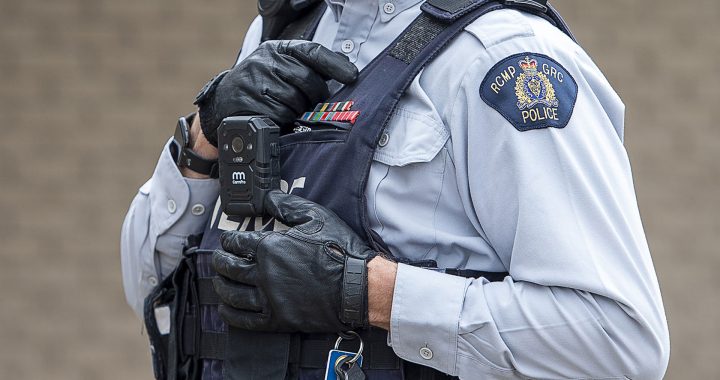
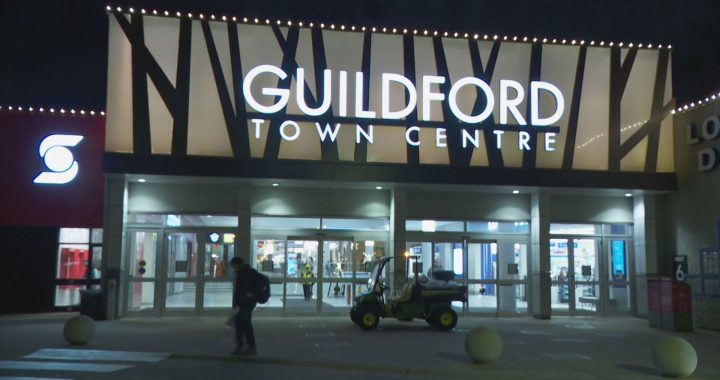
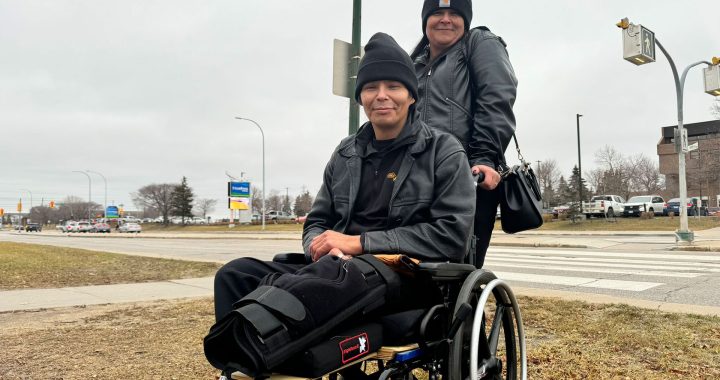
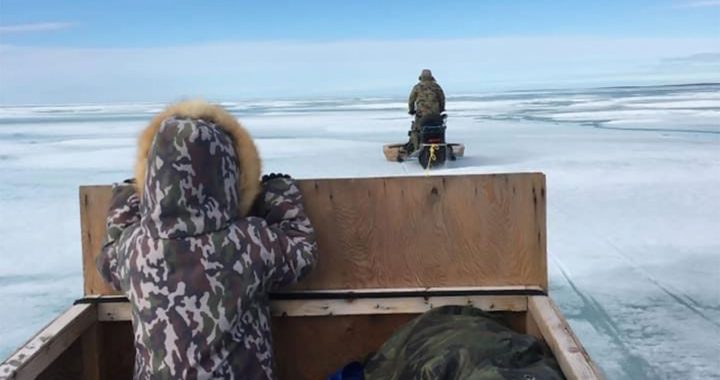
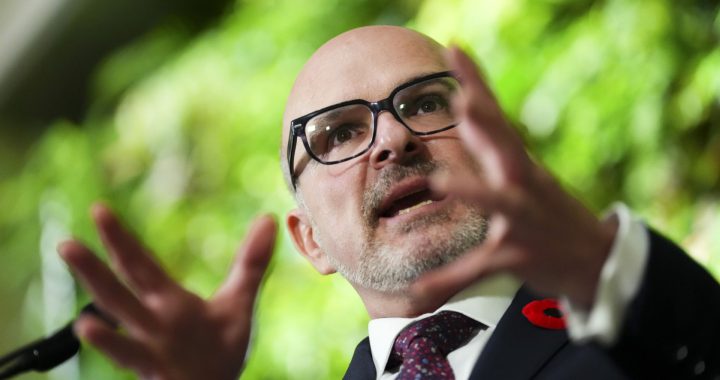
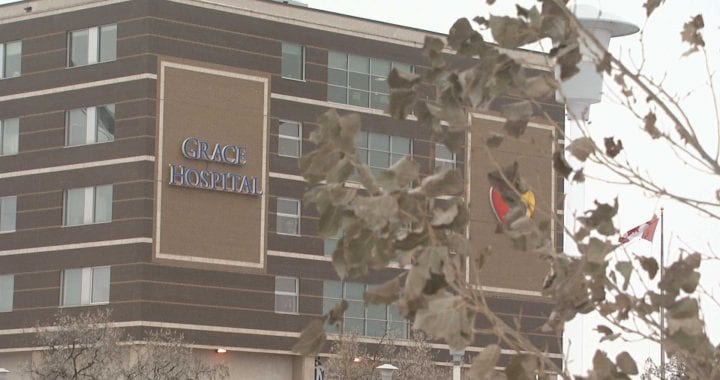
Hats off to Calvin White for the great work he has done on behalf of the aboriginal people of this province. Our family always was proud of our ancestry and everyone knew we were Indian. Our father enlisted in the First World War and was ready to fight for freedom of everyone yet people like him had to hide their identity for fear of being fired. Finally that scenario has corrected itself. Justin Trudeau is a great friend of Aboriginal people so we are lucky to have him, as final enrolment for Qalipu nears an end.
It should be pointed out that a lot of difficulty for the Mi’Kmaq in Newfoundland was the result of poor and unfair leadership under the Federation of Newfoundland Indians. They were against their own people. Good always wins!!!!!!!
As a Mi’kmaq person from PEI ,now living in London Ontario, I find this appalling, even obscene. It seems to me that we do need a LARGE petition to begin to change this and to make sure our Newfoundland brothers and sisters are recognized by the governments, both Provincial and Federal. And, I believe it MUST be done! It is good that APTN is showing this story, but I believe it must be followed by a petition and any other means that can be thought up. I am retired and partially disabled, but Creator hasn’t tapped me on the shoulder yet. If anyone can think of other ways that we can move forward to correct this absolutely shocking situation, count me in. I can write, and there are many other thingsd I can do, like sending faxes. so if someone can think of other ways to correct this obvious injustice, Pleasse count me in. Thanks. Pat wood,(or Diving Hawk, or in Mi’kmaq, Esquahuny)
My grandmother who was the daughter of a full mi,kmaq came to st.johns in the early forty,s to get a job here in St. John’s she would never tell anyone she was a Indian there she married and had my Dad,but she always would tell us about her life and she would teach us how to dance and to beat a drum…I’m so proud to say I’m mi,kmaq even if my skin and hair does not show it.I hope one day my grandchildren will feel the same way…keep up the fight.